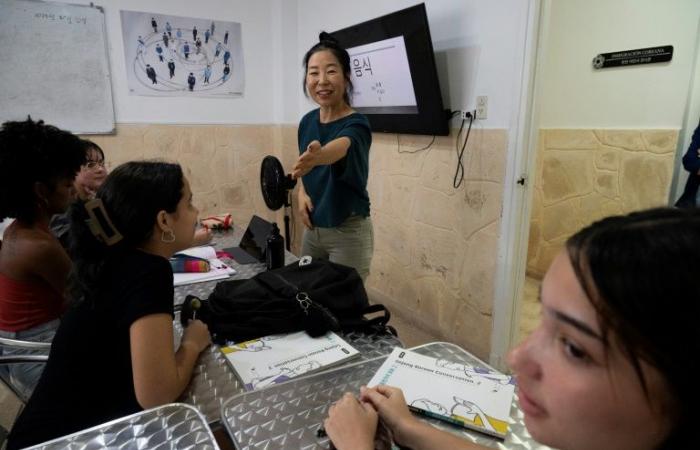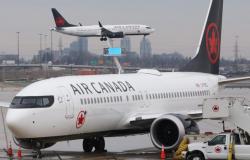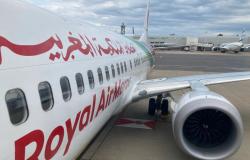Five months after reestablishing diplomatic relations, Cuba and South Korea are preparing to open their embassies. A new bond that illustrates “a generational change” on the communist island, a historic ally of Pyongyang, and strengthens Seoul’s position in Latin America, according to analysts.
After the surprise announcement on February 14 of the restoration of relations between the two countries through an exchange of diplomatic notes at the United Nations headquarters, the opening of embassies could now take place quickly.
South Korean diplomats have been in Havana since June 14 and are beginning to “set up a temporary office,” the South Korean Foreign Ministry told AFP, saying it wants to open its diplomatic mission “as soon as possible.”
On the Cuban side, officials from the island are working in the South Korean capital to also open the embassy as soon as possible, according to the South Korean news agency Yonhap. The Cuban Ministry of Foreign Affairs, contacted by AFP, did not respond.
The restoration of relations between the two countries “illustrates a generational change” in Havana, analyses Arturo Lopez-Levy, a Cuban political scientist, for AFP, while the former leader Raul Castro, 93, officially handed over the reins of the country in 2018 to Miguel Diaz-Canel, 64.
Since the 2000s, Cuba and South Korea have established a commercial rapprochement, but “one of the considerations most often heard from the Cuban side was that there was a special relationship between the historic leaders and North Korea.” preventing any evolution, specifies the researcher associated with the University of Denver.
Havana is one of Pyongyang’s few allies and the Caribbean island was until now the only one of the last communist countries (China, Laos, Vietnam), with the exception of North Korea, not to maintain diplomatic relations with Seoul.
The first diplomatic ties between Seoul and Havana were established in 1949, before being broken ten years later with the advent of the Castro revolution, Cuba then turning towards North Korea.
Harshly sanctioned by the United States and united in a “common anti-Yankee front”, Pyongyang and Havana have since maintained a close relationship and always praised the “historic relationship” between Kim Il Sung, the North Korean leader who died in 1994 , and Fidel Castro (1926-2016), the leader of the Cuban revolution.
– “Degree of independence” –
Pyongyang notably sent its diplomats to train in Cuba and supplied it with weapons in the 1980s, while the island was one of the rare countries ignoring the international sanctions imposed on North Korea because of its nuclear program.
But these relations carry little economic weight, given the commercial dynamics of South Korea, the tenth economic power in the world.
As early as 2005, a South Korean trade investment promotion office opened a representation in Havana. In 2012, for the first time in more than 50 years, an official Cuban delegation visited South Korea to discuss “trade.”
In 2023, Korean exports to Cuba represented $35.67 million (steel plates, automobile parts, cars, generators, etc.), according to figures provided to AFP by the trade representation.
Today, while the island has undertaken reforms liberalizing certain sectors of the economy in the face of a deep crisis and the persistence of American economic sanctions, Havana “is attempting active economic cooperation with South Korea,” Kim Jong-won, a researcher at the Institute for National Security Strategy (INSS), analyses for AFP.
Especially since the Asian country “has development aid programs (…) it is a real offer” for Cuba, underlines Mr. Lopez-Levy.
At the same time, the restoration of these relations represents a setback for Pyongyang, which must have been “shocked to see Cuba establish ties with South Korea,” notes Kim Jong-won.
For Mr. Lopez-Levy, “South Korea has succeeded in sabotaging the discourse of North Korea” which gave Seoul “the image of an enemy with whom it was impossible to reach an agreement.”
“This strengthens Korea’s diplomatic position in Latin America” and “gives the image of a policy towards the Americas marked by a high degree of independence from the United States, its main ally,” the researcher believes.
“It also gives Cuba a more modern image,” he adds.
Do you have a real estate project in mind? Yakeey & Médias24 help you make it happen!






